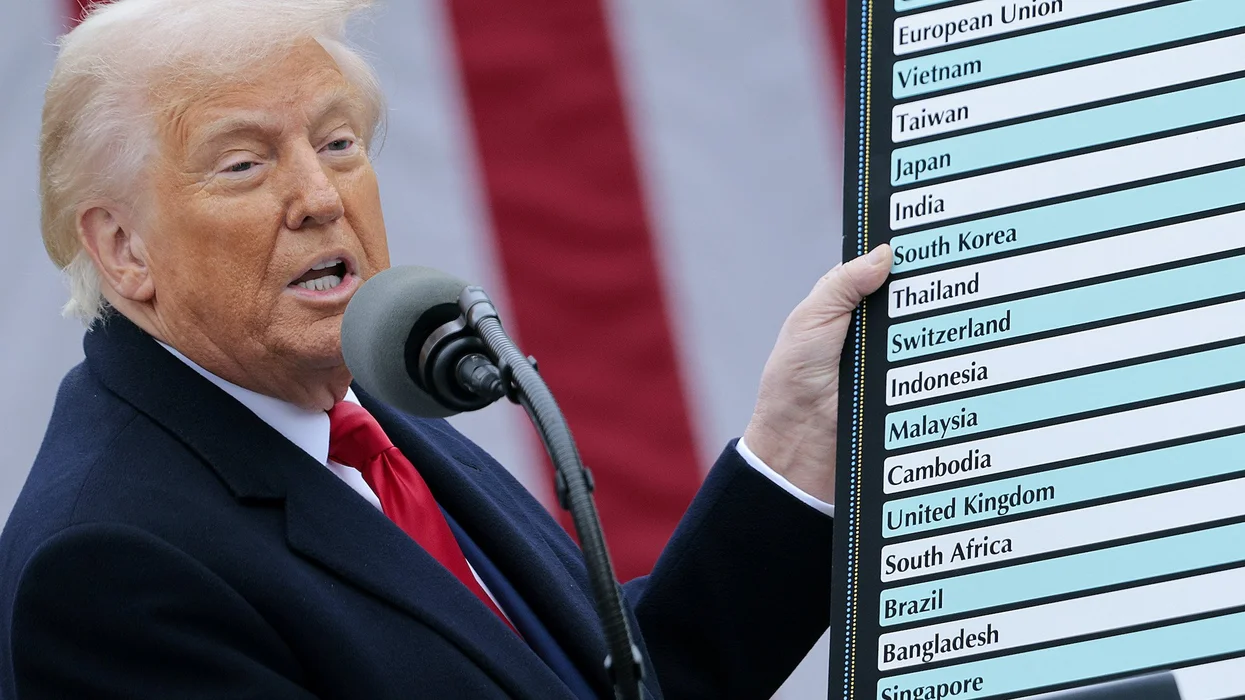
© 2025 Blaze Media LLC. All rights reserved.
More than any other single figure, Nixon shaped the second half of the American century.
"I was born in a house my father built."
That's how Richard Nixon chose to begin his memoir, "RN." A simple, declarative sentence distinguished by its humility. Nixon, the young Quaker boy who grew up poor in the citrus groves of Southern California, and through hard work, extraordinary intellect and talent, and sheer force of will, went on to become President of the United States.
Yesterday, we celebrated the Nixon Centennial. He was born January 9, 1913, and over the next 81 years, he became a dynamic symbol of American resilience.
On July 3, 1990, I became the former President's foreign policy assistant. I served in this capacity until his death on April 22, 1994 (after which I wrote two bestsellers about my experiences with him, "Nixon Off the Record," and "Nixon in Winter.") During those four years, I became a professional confidante of a man who had transformed American politics, changed global balances of power, and became an icon for those seeking both good and evil, brilliance and deceit, selflessness and selfishness, greatness and baseness. Visible and controversial even after his death, Nixon remains a source of endless fascination. "In politics," he would say, "the only worse thing than being wrong is being dull." He was sometimes wrong but he was never dull.
Nixon saw leadership as high drama, to be played out on a grand scale and without fear or hesitation. His political career, which he directed with almost epic intensity, dealt triumphs and tragedies in rapid succession: election to Congress in 1946; exposure of top-ranking State Department official Alger Hiss as a spy for the Soviet Union, launching him into the national spotlight; selection as Dwight Eisenhower's vice presidential running mate in 1952; a well-orchestrated self-defense against false charges with the Fund speech, saving his place on that ticket; the heartbreakingly close loss to John Kennedy in 1960; the defeat in the California gubernatorial race in 1962; the survival of the next six years in the political wilderness; victory in 1968 and a thundering re-election win in 1972; the opening of American relations with China, détente with the Soviet Union, and the end of the war in Vietnam; Watergate and the resignation; and the slow, deliberate climb back to respectability.
At the center of American politics for almost fifty years, Nixon commanded a significance that went beyond political influence. It was cultural. It was definitive. Whether championing anti-communism or the need to help a post-cold war Russia, civil rights or ending the draft, a "peace with honor" in Vietnam or rapprochement with China, responsible arms control, environmental protection, or educational opportunity, Nixon was there, leading. And whether making the decisions in office himself or whispering advice to his successors, Nixon was there. More than any other single figure, Nixon shaped the second half of the American century.
How we could use his wise counsel today on Iran, Afghanistan, Libya, Syria, Iraq, and al Qaeda. He was, after all, the first president to order a top-secret analysis of Islamic terror (in 1973). We could also use his realism on Russia and China. The world has always been a complicated and dangerous place, but Nixon was one of the rare presidents who could see it functioning as a whole as well as seeing its individual parts. He could also see what the world was going to look like 20 years down the road and dare to make American policy to prepare for that world.
He was once asked how history will remember him, and he replied, "The judgment of history depends on who writes it." I believe history will be far kinder to Nixon than his contemporaries were, and he will ultimately be considered one of the great modern presidents. Flawed, yes. But he was a tremendously influential leader possessing that rarest of intellectual gifts---vision---and the extraordinary courage to carry it out. This cannot be said for all presidents: Nixon mattered.
Happy 100th birthday, Mr. President! We were lucky to have your leadership, wisdom, and vision----and I was lucky to have your friendship. Godspeed, sir.
Want to leave a tip?
We answer to you. Help keep our content free of advertisers and big tech censorship by leaving a tip today.
Want to join the conversation?
Already a subscriber?
more stories
Sign up for the Blaze newsletter
By signing up, you agree to our Privacy Policy and Terms of Use, and agree to receive content that may sometimes include advertisements. You may opt out at any time.
Related Content
© 2025 Blaze Media LLC. All rights reserved.
Get the stories that matter most delivered directly to your inbox.
By signing up, you agree to our Privacy Policy and Terms of Use, and agree to receive content that may sometimes include advertisements. You may opt out at any time.





